With no institutional backing and no compromises, the Guayaquil Chamber Players hope to redefine what chamber music can mean in Ecuador’s largest city
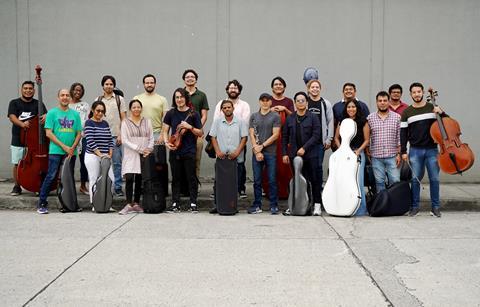
Discover more Featured Stories like this in The Strad Playing Hub
Driven by a passion to improve the quality of music-making in his native country, Ecuadorian violinist Alex Jimbo-Viteri, 38, recently founded the Guayaquil Chamber Players (GCP). This artist-led collective, based in Ecuador’s largest city, seeks to address what Jimbo-Viteri and his colleagues have come to see as a pervasive sense of complacency in the local classical music scene.
Though Guayaquil has two government-funded orchestras – one by the city, one by the state – Viteri hopes the GCP will contribute a needed sense of imagination, community engagement and urgency to strive for higher standards. He describes it as a space where chamber music can thrive through shared artistic purpose.
What makes GCP unusual is not only its grassroots structure but its uncompromising ethos. Every participant is a volunteer; every artistic decision stems from shared conviction. Its debut concert on Tuesday 17 June at the Museo Antropológico y de Arte Contemporáneo (MAAC) includes a newly commissioned piece by Grammy-nominated composer Emilio Solla and a collaboration with Guayaquilean poet Marpa (Mónica Noboa), whose words form a central part of the group’s identity-driven first programme. The Texas-based cellist Laura Andrade, a laureate of the Sphinx Competition, will make her South American debut as the featured soloist in Haydn’s C major Cello Concerto.
As the inaugural season unfolds, performances in community-centred spaces including museums and open rehearsals with local visual artists are intended to play along with the city and welcome audiences who might never have stepped inside a concert hall.
While preparing for the opening concert, Jimbo-Viteri spoke with US correspondent Thomas May about his motivations for founding GCP’s founding, the ethical freedom of refusing payment and his dreams for the group to become a symbol of integrity and artistic possibility for Guayaquil and beyond.
What did you set out to change by establishing the Guayaquil Chamber Players? What was missing from the musical scene in Ecuador?
Alex Jimbo-Viteri: GCP was born from the urgent need to transform a stagnant musical ecosystem shaped by low standards, little self-criticism and no long-term vision. Guayaquil needs an ensemble that pursues true excellence – not as a slogan, but as a daily practice.
This reality stems from a fragile structure: musicians who adapt to the public’s ignorance, conductors lacking rigor or leadership, administrations indifferent to symphonic music and a Ministry of Culture disconnected from the country’s artistic needs.
GCP is our response. We are building a space where commitment, excellence and love for music are not the exception but the standard – because the public deserves more, and so do we.
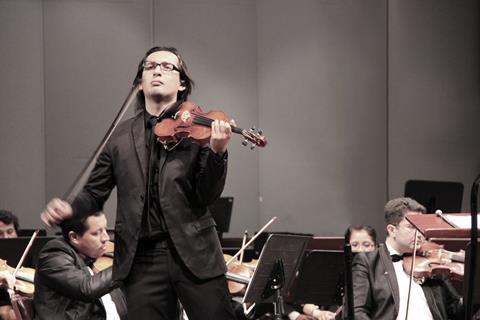
How does GCP model a different standard?
Alex Jimbo-Viteri: At GCP, we’re creating a new standard rooted in deep love for music, not obligation or reward. Our commitment comes from conviction: music deserves to be performed with excellence, respect and honesty at all times.
We bring principles and habits learnt abroad – often overlooked here due to ignorance and complacency – into our daily practice. In an environment where minimum effort is the norm, we choose discipline as an honour, not a burden. We believe another model is possible: one where high standards inspire pride and genuine dedication. That’s the standard we build and stand for with GCP.
GCP operates entirely on volunteer commitment, without fees. What has that decision unlocked artistically? What is the emotional or artistic freedom that comes with removing financial incentives?
Alex Jimbo-Viteri: Even more than assessing musical level, this process has been a true commitment filter. How can we get a musician involved in a project without a fee, when in our country even payment doesn’t guarantee dedication and excellence? It’s easy to be willing when everything is flowing along, but difficulties are what reveal character and genuine vocation.
Rather than ‘playing for free’, functioning partly as volunteers has allowed us to consciously choose our colleagues and decide which repertoires to cover and how we want to present them. This freedom is not only artistic but also ethical. We work with those who share a vision not out of imposition but out of affinity and commitment.
While we aspire to sponsorship, the most profound lesson is that when musicians are offered respect, clarity and a serious pursuit of excellence, they join out of genuine conviction and not duty. Such dedication can’t be imposed. It must be inspired and cultivated.
The founding team includes musicians who’ve worked with major ensembles and festivals like Verbier and the Simón Bolívar Symphony Orchestra. How do those international experiences shape the musical ethos of GCP?
Alex Jimbo-Viteri: Our international experience has profoundly shaped our approach to music, fostering a critical awareness and deepening our understanding of interpretive processes. It has taught us to value discipline as essential to artistic growth and to pursue excellence not as a goal, but as a sign of respect for music.
These experiences equip us with holistic tools that enhance our performance depth and enable us to share the knowledge passed down by great maestros. Through this, we contribute to raising local artistic standards and connect with musicians who share a commitment to growth, rigor and true dedication to the art.
Your upcoming debut programme includes a collaboration with the poet Marpa and a premiere by Grammy-nominated composer Emilio Solla. Why was it important to involve poetry and new music in GCP’s very first public outing?
Alex Jimbo-Viteri: Collaboration and opening spaces for other artists – both established and emerging with high potential – are part of GCP’s DNA, an essential pillar of our artistic identity. I invited Marpa to enhance and expand the way we communicate our message to the public. Just as music can enrich and deepen a film scene, words can illuminate and give new meaning to sound. Her performance represents not only our voices – mine and those of the musicians on stage – but also that of the listener, who, by recognizing themselves in the message, can discover their own truth within it.
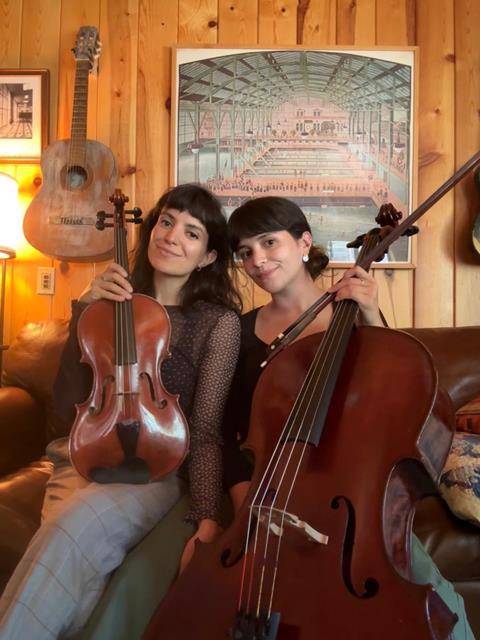
Solla’s work – a viola-cello duo titled ’Two Condors’, written for members Rita and Laura Andrade – evokes ancestral rhythms of our region, generating a powerful connection with our cultural roots. Promoting new works and collaborating with living composers is fundamental – and that includes even those who don’t necessarily come from traditional classical backgrounds. Through their music, we can glimpse how they imagine and reinterpret our cultural identity from the present.
You’ve said that GCP is not just about bringing music to the city. It involves ‘playing with’ the city. How are you engaging audiences who may never have attended a chamber music concert before?
Alex Jimbo-Viteri: We connect through the energy that springs from our deepest convictions. That motivation is what gives meaning to every note we play and every artistic decision we make. In recent years, music has been brought to hard-to-reach places, breaking down geographical and social barriers. But we believe the time has come to go one step further: not only reach them with our music, but also become the voice of those communities.
What more can an orchestra do for its people? It can be a channel to make their realities, their shortcomings and their daily needs visible, beyond art. The orchestra can be a bridge. Playing for them is, in a way, speaking to them. But we also believe it’s time to listen. To capture their voices, concerns and experiences, and transform them into something that can be shared, understood and felt by others. That is, in essence, the true nature of chamber music: a constant dialogue. Playing and listening. Because only in that honest exchange does music become a tool for social transformation.
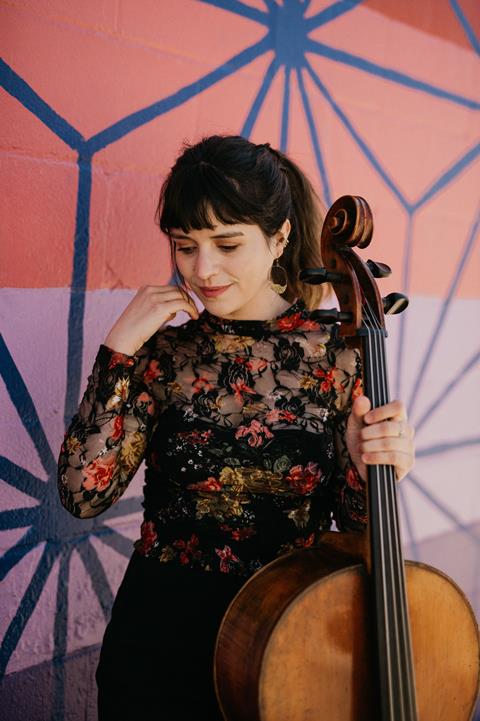
The ensemble’s founding members – like cellist Laura Andrade, who will be the featured soloist in Haydn’s C major Concerto – are based internationally. Your plans for GCP encompass ambitions ranging from touring to perform in the US to inviting dream guests like Nicola Benedetti or Ray Chen. How do you balance that global vision with your rootedness in Guayaquil?
Alex Jimbo-Viteri: Balancing a global vision with strong local roots is our driving force rather than a challenge. There’s no conflict between dreaming big and being deeply grounded in Guayaquil. Real change begins here. We can’t expect artists like Nicola Benedetti or Ray Chen to come if we don’t first raise our standards. I remember asking Lang Lang if he would come to Ecuador, and his response was: ‘But what’s there?’ That question sums up a painful fact: unfortunately, neither as a city nor in the artistic world are we yet recognised or economically competitive.
Having GCP ambassadors abroad gives us perspective, not distance. Our mission is to bring that experience back, adapt it to our reality, and prove that Guayaquil can become a cultural landmark – if we commit fully. Dreaming globally isn’t escapism. It means building bridges that connect our talent with the world.
Dreaming globally isn’t escapism. It means building bridges that connect our talent with the world
Over the longer arc, if the GCP project becomes a cultural symbol for the city – as you hope – what do you want it to represent in five or ten years’ time?
Alex Jimbo-Viteri: In five years, I hope our audiences recognise a level of quality in each project and concert that is distinct from what is usual on the local scene. I hope they feel that each performance is an authentic experience, in which they can feel the dedication and genuine commitment of the musicians.
I hope that a decade from now they will see GCP as the collective or orchestra that has managed to connect deeply with the public, conquering new audiences and, especially, involving people who have never before encountered art. We want the entire city to know that this ensemble exists, to recognise it as part of its cultural identity, and to feel a part of it. My vision is for Guayaquil to be reflected in prestigious international venues, and for those same venues to look back on our city with respect, admiration and recognition.
Read: Sphinx Organization announces its MPower Artist Grants for 2024
Listen: The Strad Podcast Episode #51: John-Henry Crawford on Latin American music
Read: Villa-Lobos and the cello: A voice for Brazil
Discover more Featured Stories like this in The Strad Playing Hub
The number one source for playing and teaching books, guides, CDs, calendars and back issues of the magazine.
In The Best of Technique you’ll discover the top playing tips of the world’s leading string players and teachers. It’s packed full of exercises for students, plus examples from the standard repertoire to show you how to integrate the technique into your playing.
The Strad’s Masterclass series brings together the finest string players with some of the greatest string works ever written. Always one of our most popular sections, Masterclass has been an invaluable aid to aspiring soloists, chamber musicians and string teachers since the 1990s.
The Canada Council of the Arts’ Musical Instrument Bank is 40 years old in 2025. This year’s calendar celebrates some its treasures, including four instruments by Antonio Stradivari and priceless works by Montagnana, Gagliano, Pressenda and David Tecchler.
Reference

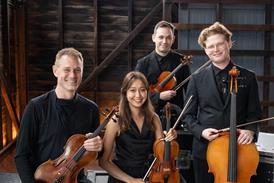
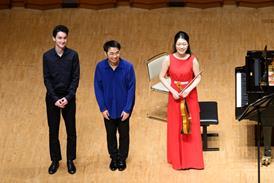
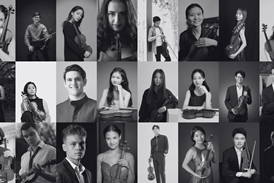
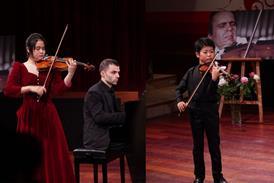
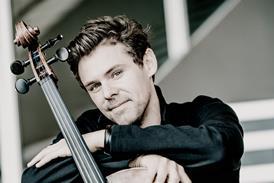
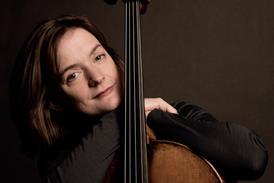
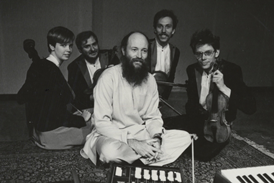


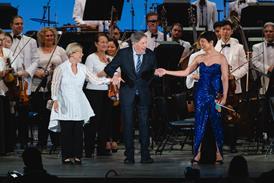

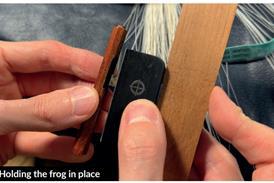
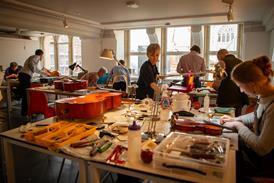
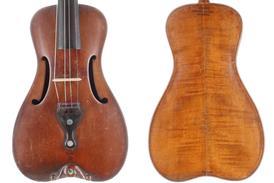
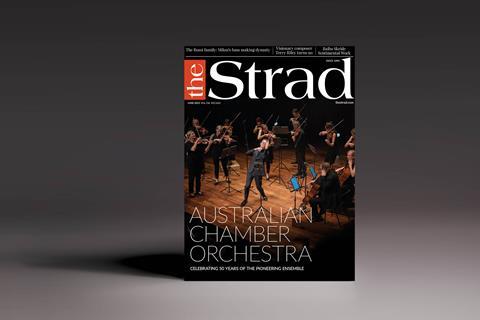





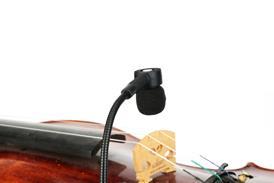
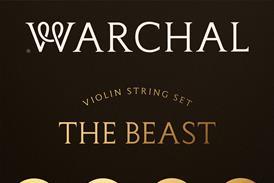















No comments yet